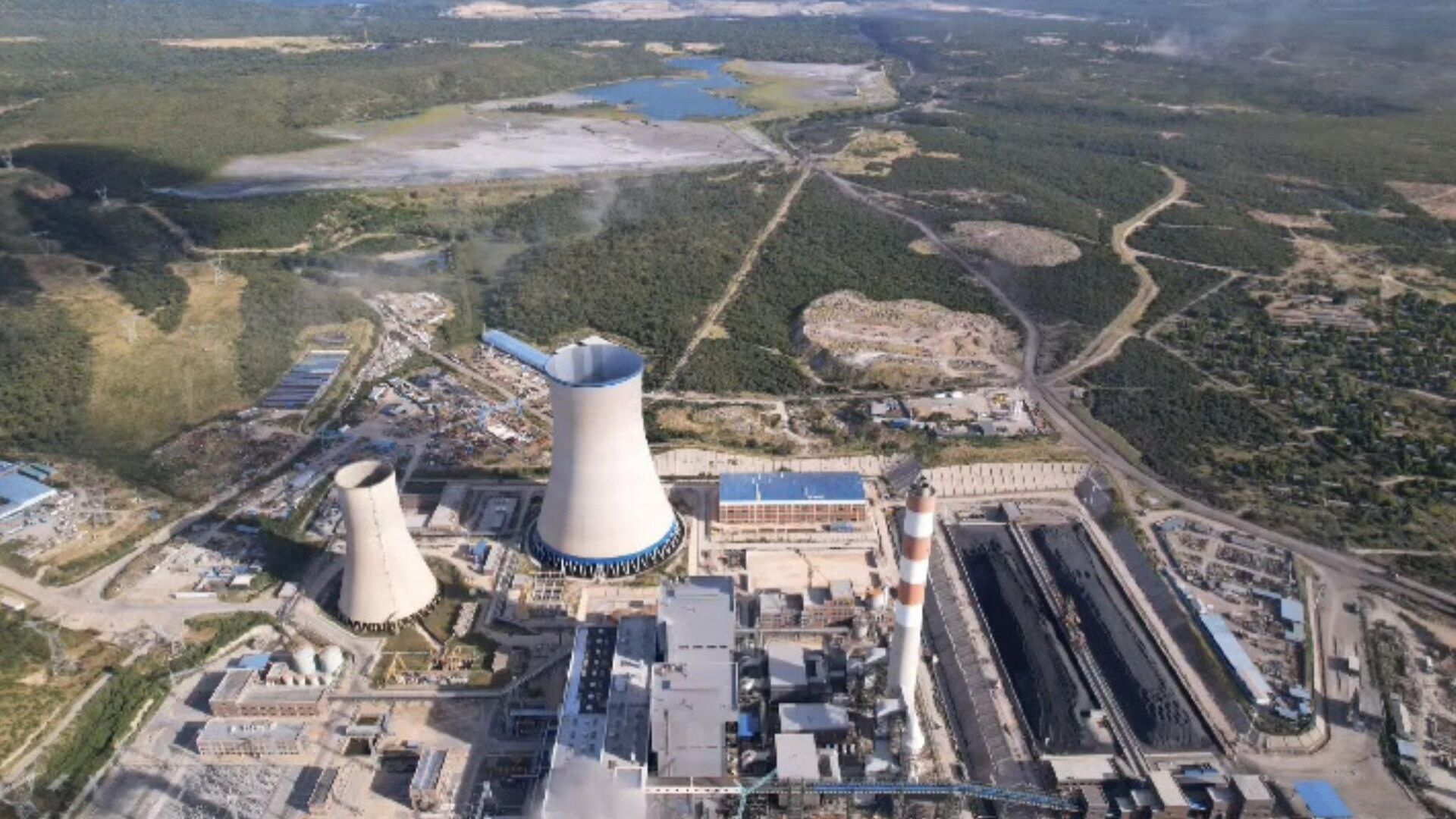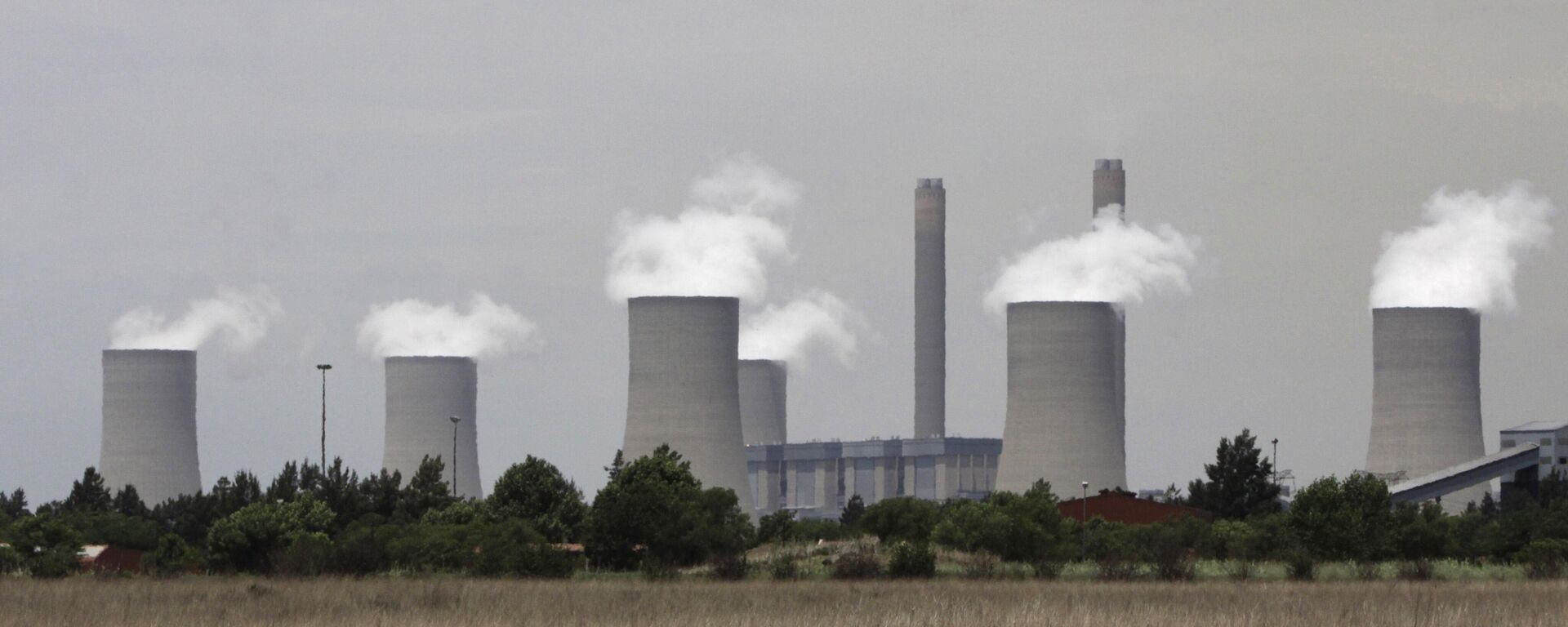https://en.sputniknews.africa/20230602/zimbabwe-intends-to-double-power-generation-by-2025-to-fulfill-increasing-mining-demand-1059663166.html
Zimbabwe Intends to Double Power Generation by 2025 to Fulfill Increasing Mining Demand
Zimbabwe Intends to Double Power Generation by 2025 to Fulfill Increasing Mining Demand
Sputnik Africa
Zimbabwe's state-owned energy company ZESA intends to more than double the capacity of the national power grid by 2025 to meet growing demand from the mining sector, its CEO Howard Choga announced.
2023-06-02T11:10+0200
2023-06-02T11:10+0200
2023-06-02T11:10+0200
sub-saharan africa
zimbabwe
southern africa
energy
renewable energy
energy crisis
https://cdn1.img.sputniknews.africa/img/07e7/06/02/1059663446_0:9:2048:1161_1920x0_80_0_0_e8a9060225ddbfe41a34ddefb933c4e0.jpg
Zimbabwe's state-owned energy company ZESA intends to more than double the capacity of the national power grid by 2025 to meet growing demand from the mining sector, its CEO Howard Choga announced.The official added that the growth could come from floating solar projects at Kariba Dam, increased power generation at the 300MW Hwange coal-fired power plant and opportunities for independent power producers.The latter has important implications for the country's energy capital, as ZESA started purchasing surplus solar energy from households and businesses in February.According to Choga, last December the government unveiled incentives to help bring 1,100MW of new solar projects into service by 2025, but "due to a lack of investment in new energy projects, there has been little progress."The initiative that allows mining companies to import electricity has remained underdeveloped because of a shortage of foreign currency.At the conference, miners reportedly lamented that they lose up to 12 hours of work time every day because of power outages.As of Thursday, the Zimbabwe Power Company, a subsidiary of ZESA, was generating a total of 1,423MW, which is 59 percent less than the stated goal.The company attributes this to numerous forced outages caused by a decline in hydropower generation due to a decrease in water levels in Lake Kariba.
https://en.sputniknews.africa/20230520/how-to-solve-south-africas-energy-crisis--the-part-russia-can-play-in-solving-it-expert-explains-1059364935.html
zimbabwe
southern africa
Sputnik Africa
feedback@sputniknews.com
+74956456601
MIA „Rossiya Segodnya“
2023
Maxim Grishenkin
https://cdn1.img.sputniknews.africa/img/07e7/0a/17/1063018107_0:0:1104:1103_100x100_80_0_0_03090c85a11f5d2e8a19cf1d989443c9.jpg
Maxim Grishenkin
https://cdn1.img.sputniknews.africa/img/07e7/0a/17/1063018107_0:0:1104:1103_100x100_80_0_0_03090c85a11f5d2e8a19cf1d989443c9.jpg
News
en_EN
Sputnik Africa
feedback@sputniknews.com
+74956456601
MIA „Rossiya Segodnya“
Sputnik Africa
feedback@sputniknews.com
+74956456601
MIA „Rossiya Segodnya“
Maxim Grishenkin
https://cdn1.img.sputniknews.africa/img/07e7/0a/17/1063018107_0:0:1104:1103_100x100_80_0_0_03090c85a11f5d2e8a19cf1d989443c9.jpg
zimbabwe intends to double power generation by 2025, energy situation in zimbabwe
zimbabwe intends to double power generation by 2025, energy situation in zimbabwe
Zimbabwe Intends to Double Power Generation by 2025 to Fulfill Increasing Mining Demand
According to a February statement by the country's Deputy Energy Minister Magna Mudyiwa, the South African nation had the capacity to generate up to 2,100MW from its power sources. With the Hwange coal-fired power plant starting up in April, the declared capacity is 2,400 MW.
Zimbabwe's state-owned energy company ZESA intends to more than double the capacity of the national power grid by 2025 to meet growing demand from the mining sector, its CEO Howard Choga announced.
"We expect that by 2025, we would have added 2,300MW to the grid. I must say over 80% of the demand is from miners, the media quoted Choga as saying during his address to a mining conference at the Elephant Hills Hotel in Victoria Falls, in the northwest of the country.
The official added that the
growth could come from floating solar projects at Kariba Dam, increased power generation at the 300MW Hwange coal-fired power plant and opportunities for independent power producers.
The latter has important implications for the country's energy capital, as ZESA started purchasing surplus solar energy from households and businesses in February.
According to Choga, last December the government
unveiled incentives to help bring 1,100MW of new solar projects into service by 2025, but "due to a lack of investment in new energy projects, there has been little progress."
The initiative that allows mining companies to import electricity has remained underdeveloped because of a shortage of foreign currency.
"We have had a discontinuation of supply from Zambia and Mozambique because we failed to pay. After accumulated bills imports were then discontinued on March 13," Choga said.
At the conference, miners reportedly lamented that they lose up to 12 hours of work time every day because of power outages.
As of Thursday, the Zimbabwe Power Company, a subsidiary of ZESA, was generating a total of 1,423MW, which is 59 percent less than the stated goal.
The company attributes this to numerous forced outages caused by a decline in hydropower generation due to a decrease in water levels in Lake Kariba.



